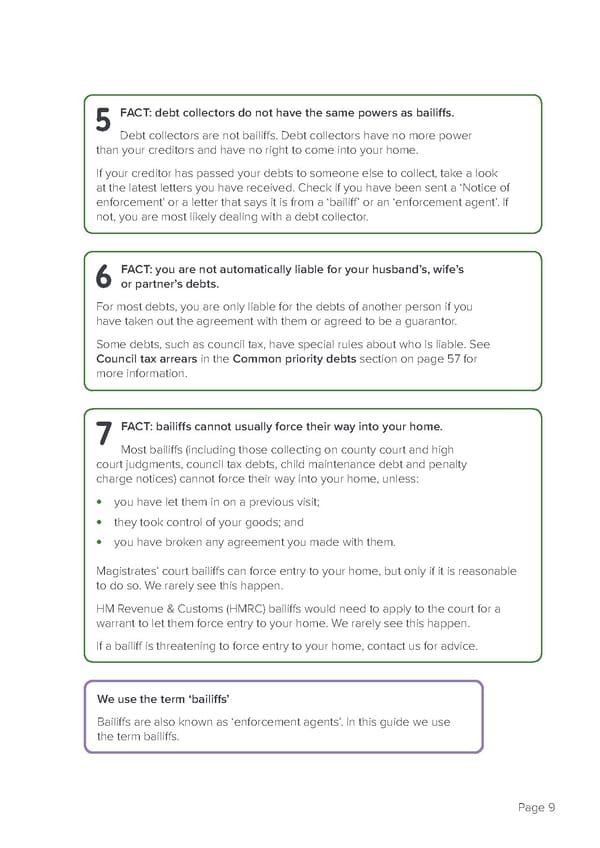FACT: debt collectors do not have the same powers as bailiffs. 5 Debt collectors are not bailiffs. Debt collectors have no more power than your creditors and have no right to come into your home. If your creditor has passed your debts to someone else to collect, take a look at the latest letters you have received. Check if you have been sent a ‘Notice of enforcement' or a letter that says it is from a ‘bailiff’ or an ‘enforcement agent’. If not, you are most likely dealing with a debt collector. FACT: you are not automatically liable for your husband’s, wife’s 6 or partner’s debts. For most debts, you are only liable for the debts of another person if you have taken out the agreement with them or agreed to be a guarantor. Some debts, such as council tax, have special rules about who is liable. See Council tax arrears in the Common priority debts section on page 57 for more information. FACT: bailiffs cannot usually force their way into your home. 7 Most bailiffs (including those collecting on county court and high court judgments, council tax debts, child maintenance debt and penalty charge notices) cannot force their way into your home, unless: • you have let them in on a previous visit; • they took control of your goods; and • you have broken any agreement you made with them. Magistrates’ court bailiffs can force entry to your home, but only if it is reasonable to do so. We rarely see this happen. HM Revenue & Customs (HMRC) bailiffs would need to apply to the court for a warrant to let them force entry to your home. We rarely see this happen. If a bailiff is threatening to force entry to your home, contact us for advice. We use the term ‘bailiffs’ Bailiffs are also known as ‘enforcement agents’. In this guide we use the term bailiffs. Page 9
 how-to-deal-with-debt Page 10 Page 12
how-to-deal-with-debt Page 10 Page 12